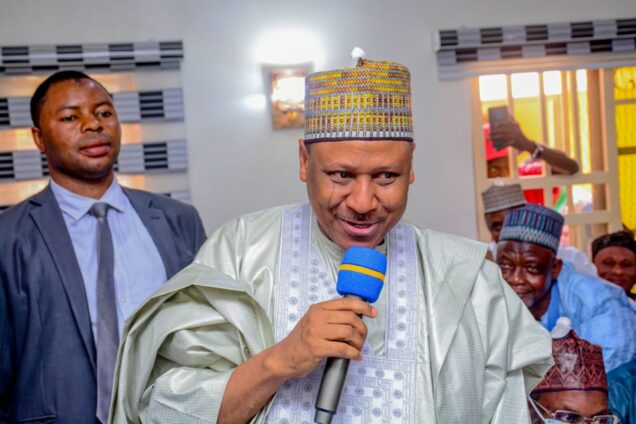 Nigeria is fast degenerating into a Nation of mourners albeit without declaration of wars. And there is no year that has assumed such noteriety for death (as distinct from life) expentancy than 2012. The legendary Hobsian state of nature in which reportedly life is short, nasty and brutish might very well be Nigeria in 2012 after all. Within a month alone, two major air and auto crashes had claimed a governor and a former national security adviser. Two governors are off duty on account of air and road accidents. Specifically Sir Patrick Ibrahim Yakowa, the Executive Governor of Kaduna State and former National Security Adviser (NSA), General Andrew Azazi (rtd) among others on Saturday December 15, 2012 died in a helicopter crash at Nembe-Okoroba area of Bayelsa State. In June this year Dana air crash claimed as many as 153 lives at the infamous Iju-Ishaga crash in Lagos.
Nigeria is fast degenerating into a Nation of mourners albeit without declaration of wars. And there is no year that has assumed such noteriety for death (as distinct from life) expentancy than 2012. The legendary Hobsian state of nature in which reportedly life is short, nasty and brutish might very well be Nigeria in 2012 after all. Within a month alone, two major air and auto crashes had claimed a governor and a former national security adviser. Two governors are off duty on account of air and road accidents. Specifically Sir Patrick Ibrahim Yakowa, the Executive Governor of Kaduna State and former National Security Adviser (NSA), General Andrew Azazi (rtd) among others on Saturday December 15, 2012 died in a helicopter crash at Nembe-Okoroba area of Bayelsa State. In June this year Dana air crash claimed as many as 153 lives at the infamous Iju-Ishaga crash in Lagos.
Since President Goodluck Jonathan’s inauguration in 2011, at least 1,100 people have died in incidents involving state security forces, including government troops killed in shootouts with militants. Reportedly some thousands were extrajudicially killed in the last four years. Extra judicial killing has also become criminally communal as witnessed by the bestial and barbaric manner in which some four students of the University of Port Harcourt (UNIPORT), Port Harcourt, were hacked to death by some natives of the Omuokiri Community, Aluu. Of course Nigeria is already an unofficial global capital of accidents. In 2008, alone as many as 46 soldiers again summarily got perished not in the notorious battle field of Darfur (where they gallantly served under the auspices of UN peace keeping operation) but along Bauchi-Pakiskum “road” to their respective homes. The Pakiskum human wastage, regardless of the scale of its attendant grief and sorrow (assuming we can assign units to human tragedy) only adds to the increasing deafening noise level of the worsening life expectancy in Nigeria. Pray if those trained and tested to defend us like these scores of fine soldiers proved so vulnerable and defenceless in the face of avoidable death quakes rampaging Nigeria, what then about the multitude of Nigerians whose “untimely” death might not be as news ? Judging by the frequency of mass burials, Life Expectancy (LE) being a significant success factor in Human Development Index (HDI) as conceptualized by United Nations Development Programme (UNDP) is increasingly meaningless in Nigeria. Here longevity is proving an exception. In fact, Death Expectancy (DE) assuming anything like that exists is more real than Life Expectancy (LE). The human body counts on our “roads” due to pipelines/tankers explosion (again without Nigeria being under military attacks) can fill global mortuaries. Charred remains of Nigerians are increasingly photo journalists’ delight in the year. Meanwhile a visit to the web-site of National Road Safety Commission reveals human tragedies and miseries of varying proportions reduced to some miserable statistics. Former National Association of Nigerian Students (NANS) Secretary General and Executive Director of Ola Oni Centre in Oshogbo, Osun State, Abiodun Kolawole died in a road accident in December 2012.
According to the Oxford dictionary, accident is defined as happenings “unexpected” or “unplanned”. From the serial catalogue of road/pipelines/air crash killings will anybody still say that these rude happenings are unexpected or unplanned? Indeed when accidents prove addictive they are anything but accidental. Addictive accidents mean incidents that are either planned or expected that are preventable and certainly not inevitable.
If we get this clarification clear then, we can truly come to terms with daily murders (murders are what they are!) on our roads and around areas pipeline explosions take place. Why should we allow fuel tankers (read: mobile bombs!) to freely ply roads at anytime and at any speed? How many officials have resigned following serial pipelines explosions ? How many have been prosecuted and punished for plain murders?
The point here is that its time for President Jonathan declared emergency on roads and air to stop these “accidents”. This cannot be as intractable as the power sector emergency. You don’t need trillions of Naira to prevent “accidents”. There must be zero-tolerance to preventable head-on collusions and suicidal driving and drivers. That the roads are bad we know. We also know that in Nigeria the roads can only get worse. But what we know is that it is not compulsory that we must ply these roads at night. Infact we must ban night travels until the roads are made better. There must also be enforceable speed limit with punishment for murderous and suicidal drivers. It is bad enough that a country like Nigeria allows its citizens to be transported by miserable objects called Okadas. Okadas are not just “accidents” waiting to happen, they are daily tragedies! It is officially criminal to ignore that these motorcycles are murdering their vulnerable users in hundreds nation-wide precisely because they recklessly ride and without any protective devices whatsoever as we know this in civilized knowledge-driven countries. “Accidents” kill Nigerians more than malaria, HIV/AIDS attacks combined and yet “accidents” have cure; prevention and punishment. Happy new accidents-free year!
Issa Aremu, mni



